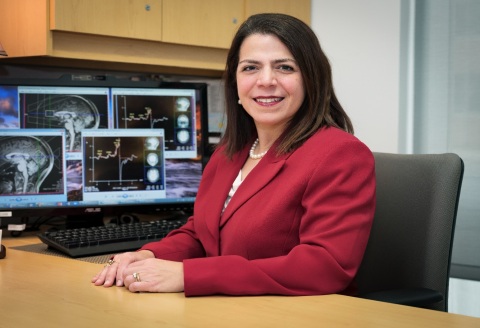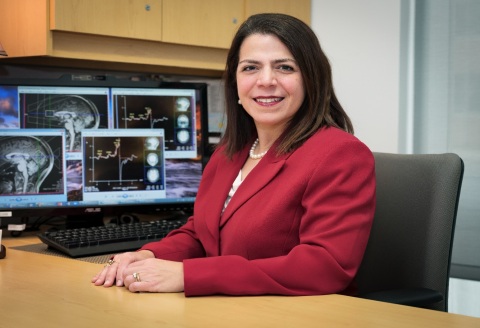MANHASSET, N.Y.--(BUSINESS WIRE)--To study perinatal depression in women – before and after childbirth – and possible new treatments, The Feinstein Institutes for Medical Research has been awarded more than $4 million in multi-year grants. The research will be led by Kristina Deligiannidis, MD, associate professor at the Feinstein Institutes’ Institute of Behavioral Science.
The National Institutes of Health (NIH) awarded the Feinstein Institutes $2.7 million to study the pathophysiology – or manifestations – of perinatal depression in women. The study will look to determine the relationships between sex steroids, brain chemistry and brain circuitry in women with perinatal depression and those without. Perinatal often refers to pregnant women and up to one year after giving birth.
Additionally, the Feinstein Institutes was granted $1.4 million as a four-year sub-award from Rhode Island Hospital, also funded by the NIH. The Feinstein Institutes will be part of a multi-site randomized clinical trial, along with Rhode Island Hospital, Johns Hopkins University and UNC Chapel Hill. Researchers will examine if Personalized Integrated Chronotherapy (PIC) intervention can improve treatment outcomes for patients seeking outpatient care for depression, and/or anxiety during pregnancy versus traditional treatment. PIC treatment consists of bright light therapy to modify the sleep cycle. The clinical trial will aim to recruit women during their third trimester of pregnancy and all four academic sites will run identical trials in an effort to include racially and ethnically diverse participants.
“Expecting mothers and new moms are susceptible to depression and it is crucial to understand the condition’s origins and how it manifests to develop new treatments,” said Dr. Deligiannidis, director of Women’s Behavioral Health at Zucker Hillside Hospital. “With the NIH’s support, we will be able to design future clinical studies to intervene sooner and help women suffering from depression.”
Depression among perinatal women is common and Centers for Disease Control (CDC) research shows that approximately one in eight women experience symptoms of postpartum depression or depression after giving birth. While treatment options are available, this new funding will help determine the biological underpinnings of different subtypes of perinatal depression and if PIC is an effective treatment for women suffering from one subtype, characterized by insomnia.
“Dr. Deligiannidis is a leader in behavioral health and a pioneering researcher in the treatment of women suffering from depression,” said Kevin J. Tracey, MD, president and CEO of the Feinstein Institutes. “These latest NIH-supported studies have the potential to improve the quality of life and health of expecting and new mothers.”
About the Feinstein Institutes
The Feinstein Institutes for Medical Research is the research arm of Northwell Health, the largest health care provider and private employer in New York State. Home to 50 research labs, 3,000 clinical research studies and 5,000 researchers and staff, the Feinstein Institutes raises the standard of medical innovation through its five institutes of behavioral science, bioelectronic medicine, cancer, health innovations and outcomes, and molecular medicine. We make breakthroughs in genetics, oncology, brain research, mental health, autoimmunity, and are the global scientific leader in bioelectronic medicine – a new field of science that has the potential to revolutionize medicine. For more information about how we produce knowledge to cure disease, visit http://feinstein.northwell.edu and follow us on LinkedIn.




